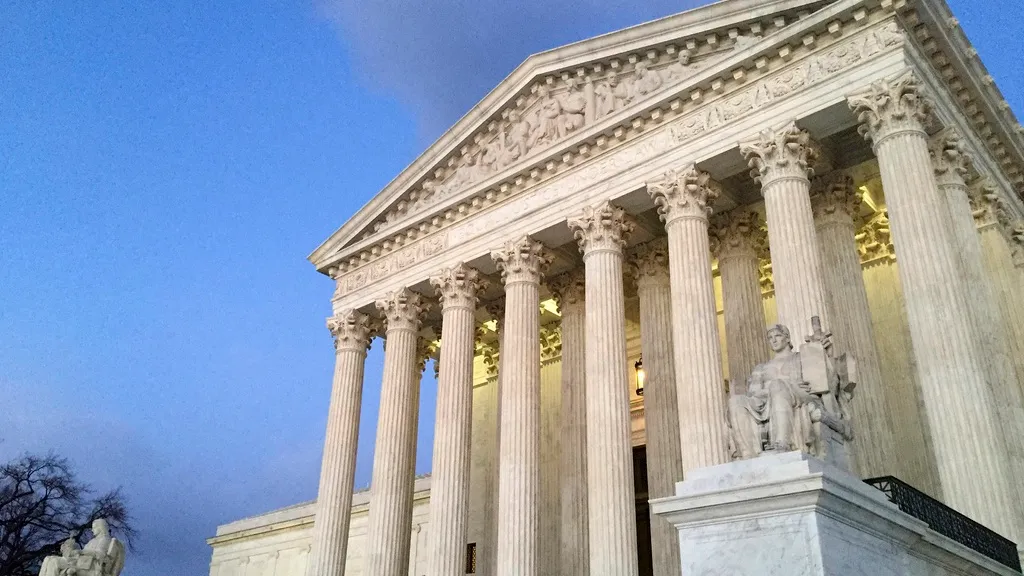July 20, 2013
Obama's Inaugural Ambitions Meet Political Reality
Six months ago, President Barack Obama stood on the Capitol steps and offered a soaring liberal vision for his second term. Buoyed by re-election, he said the nation must pursue without delay steps to protect children from gun violence, tackle climate change and overhaul fractured immigration laws.
But the intervening months have showcased the political limits of Obama's ambitions. The result has been an uneven and sometimes disjointed first half of what arguably could be the most important year of the remainder of his presidency.
Legislative victories have been scarce, with Obama's gun control measures vanquished on Capitol Hill, slim prospects for a grand deficit reduction deal and an uncertain future for a White House-backed immigration overhaul.
Domestic entanglements and foreign policy crises also have thrown the White House off course and into a defensive crouch. Obama's health care law is nearing a critical phase that will determine its success and a fresh budget battle is looming at the government approaches its borrowing limit.
Obama's top aides insist they came into the year clear-eyed about the potential pitfalls, particularly on Capitol Hill, where Republicans run the House.
"We always knew what the political realities were," said Dan Pfeiffer, Obama's senior adviser. "We won a big election - and we won with 51 percent of the vote."
In an era of divided government and an equally divided nation, the White House says it is measuring second-term success in ways other than the legislative scorecard, including through executive actions. In assessing the promises fulfilled from Obama's Jan. 21 inauguration address, his advisers point to progress on gay rights and climate change, which had prominent placements in the speech.
"We will respond to the threat of climate change, knowing that the failure to do so would betray our children and future generations," Obama said as he addressed the crowd sprawled across the National Mall on that chilly January day. "Some may still deny the overwhelming judgment of science, but none can avoid the devastating impact of raging fires and crippling drought and more powerful storms."
But recent progress on those issues comes with asterisks.
Obama did outline an ambitious climate change agenda this month, including first-ever limits on carbon dioxide emissions from existing power plants. But it's far too early to say whether his pledges will get results. Congressional opposition also limited him to only proposals that do not require approval from lawmakers, meaning broader measures, including a cap-and-trade law, remain unobtainable.
On gay issues, the expansion of rights for same-sex couples emanated from the Supreme Court, though the Obama administration did ask the justices to consider striking down a chief provision of the Defense of Marriage Act, which restricted federal benefits for in same-sex marriages.
White House officials say they're also buoyed by slow yet steady progress in the economy over the first half of the year. The unemployment rate sits at 7.6 percent, painfully high but near the lowest rate of Obama's presidency, and consumer confidence is at one of the highest levels since he took office.
But there are big questions about what more Obama can accomplish in his second term given that gridlock on Capitol Hill shows no signs of easing. While an immigration bill passed the Senate, conservative House Republicans are threatening to block the measure. Regardless of the outcome on immigration, the White House appears to have no other plans for pushing major second-term legislation.
Kevin Madden, a Republican strategist who advised Mitt Romney's 2012 presidential campaign, said that Obama, without working with Capitol Hill, will have trouble fulfilling his inaugural promises.
"For an agenda that grand and that sweeping, he really needs a reservoir of good will up on Capitol Hill," Madden said. "And he's never really had that."
Obama has had some success in recent months in identifying a few Republican senators who can be potential partners on legislation or at least people with whom he can hold regular discussions. But the fact that the president simply talking with Republican lawmakers represents a breakthrough shows how damaged the White House's relationship with Congress has become.
Among those GOP senators is Arizona's John McCain, who has become an important White House ally this year on immigration, deficit reduction talks, and filibuster reform. McCain, who met most recently with Obama on Wednesday, said the president has "grown in the job" and lost his "degree of condescension" that came with winning the White House and a Democratic majority in 2008.
"This president, like every president, is looking at his legacy and how he will be viewed by historians," McCain said. "And he sees that there are areas where he and I can work together on."
McCain remains at odds with the White House on several foreign policy matters, and was a driving force in keeping alive questions about the fatal attack on Americans in Benghazi, Libya, last Sept. 11. The persistent investigations into the attacks were among the controversies that have plagued the president since his second swearing in.
The White House also has been forced to answer questions about what it knew about the Internal Revenue Service's targeting of conservative political groups, the Justice Department's seizure of journalists' phone records, and the National Security Agency's domestic spying programs.
Foreign policy crises have competed for Obama's attention, most notably U.S. intelligence assessments of Syrian chemical weapons use and the coup in Egypt, as well as troubles with Afghan President Hamid Karzai as the U.S. moves toward ending the war there.
But the controversies and distractions have not had a major impact on Obama's approval rating, though it has slipped somewhat.
The Gallup daily tracking poll, which put Obama's approval at 52 percent around the inauguration, now has the president at 46 percent approval. According to the Pew Research Center, the public's view of Obama's handling of the economy has improved, up from 40 percent in February to 44 percent in mid-June. But his approval rating in foreign policy, long considered to be Obama's strength, has fallen, with Quinnipiac University polling putting him at 40 percent approval this month, down from 47 percent in May.
Pfeiffer said the White House is well-aware that second term agendas can quickly be overtaken by outside events that "can clog up Washington." But he dismissed the notion that Obama's window second term opportunities will close as Washington lurches toward the 2014 elections, then another presidential campaign.
"I don't buy that there's some artificial date by which a president's ability to get things done goes away," he said.





